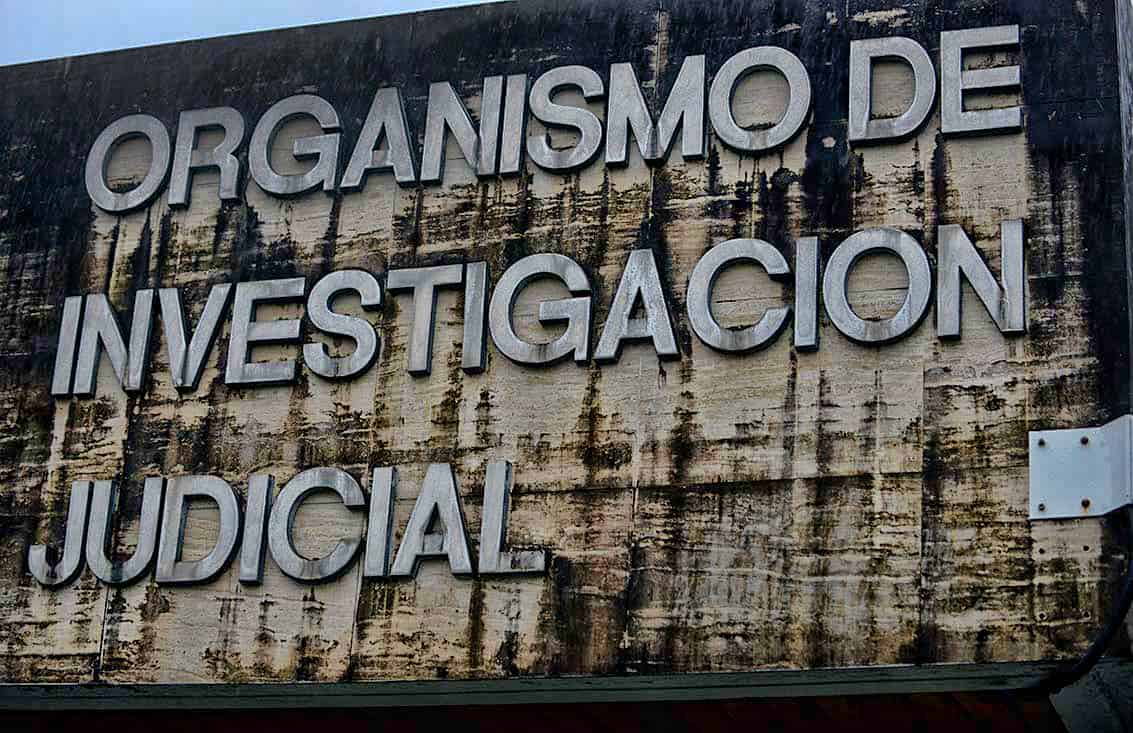A man with a drug conviction and a woman, both from Guatemala, were gunned down in their car just blocks from Casa Presidencial Thursday evening by two hit men on a motorcycle, according to a statement from the Judicial Investigation Police (OIJ). The execution in the middle of rush-hour traffic was the latest suspected narco-related killing as the government searches for a strategy to tackle organized crime here.
The victims were identified as a 44-year-old man with the last name Suchite and his 23-year-old wife with the last name Duarte. The couple was sitting in a car at a stoplight around 6:00 p.m. when two gunmen on a motorcycle pulled up next to them and fired into the vehicle.
A woman who saw the shooting told The Tico Times that she was leaving work when the noise caught her attention.
“I thought it was fireworks at first,” said the woman, who asked not to be identified, “I turned and saw smoke rising out of the car.”
She said the gunmen, who were wearing helmets, waited for traffic to start moving when the light changed before firing into the driver’s side of the car. Bullet holes littered the wall of the restaurant El Pollo Más Sabroso across the street from the shootout.
“I’ve never seen anything like this before,” she said. “It’s terrible. They’ll just kill someone like it’s nothing these days.”
Duarte was shot twice, in the right hand and the head, according to OIJ. Suchite was hit five times — in the chin, neck, head and two in the chest. Both died at the scene, police said.
OIJ said there is no known motive at this time and the case is under investigation.
Suchite had a previous conviction for drug trafficking in 2010, OIJ spokeswoman Xinia Zamora told Channel 7 TV News. Despite his 12-year sentence in La Reforma prison, Suchite was allowed to leave prison in March as long as he spent one night a week in a penitentiary center in the San José neighborhood of Guadalupe. He was reportedly on his way there when the gunmen struck.
Public executions like this have gripped headlines in Costa Rica this year with several high profile cases, including the assassination of a suspected hit man in broad daylight in San José on Oct. 9. The first half of 2015 saw a spike in motorcycle-related shootings, including a 42-year-old U.S. businessman who was shot at least four times in the chest outside a restaurant near the Centro Paco shopping center in Escazú. He survived the attack.
In March, then director of the OIJ, Francisco Segura, proposed a series of new regulations that would have prohibited passengers from riding on the backs of motorcycles and banned tinted helmet visors, among other provisions. Similar regulations are in effect in Guatemala, Honduras and other Latin American countries.
Segura said at the time that 45 people had been shot dead by motorcyclists from the beginning of 2014 to March of this year. Last year OIJ received 1,738 complaints of assaults committed by individuals driving motorcycles.
José Francisco Camacho, a Broad Front lawmaker who was president of the Committee on Public Security and Drug Trafficking at the time of Segura’s remarks, told The Tico Times on Friday that the committee was working on the matter but that no legislation has been drafted.
“It’s complicated,” Camacho said. “The OIJ’s proposal as not well received by the motorcyclists and we would need to renew the proposal when the OIJ names a new director.” OIJ has had a temporary director since July following Segura’ resignation.
After several years of decline, Costa Rica’s homicide rate has ticked up during the last two years. Authorities say the increase in homicides is related to organized crime’s tightening grip on the Central American country, which is better known for coffee and beach vacations than violent crime. Public Security Minister Gustavo Mata has called for a new inter-institutional system to improve organized crime investigations and prosecutions.
President Luis Guillermo Solís held a meeting with his cabinet members in late October to discuss new strategies to address organized crime here. The meeting resulted in an announcement that 500 police officers would be dispatched to areas hardest hit by drug trafficking.






